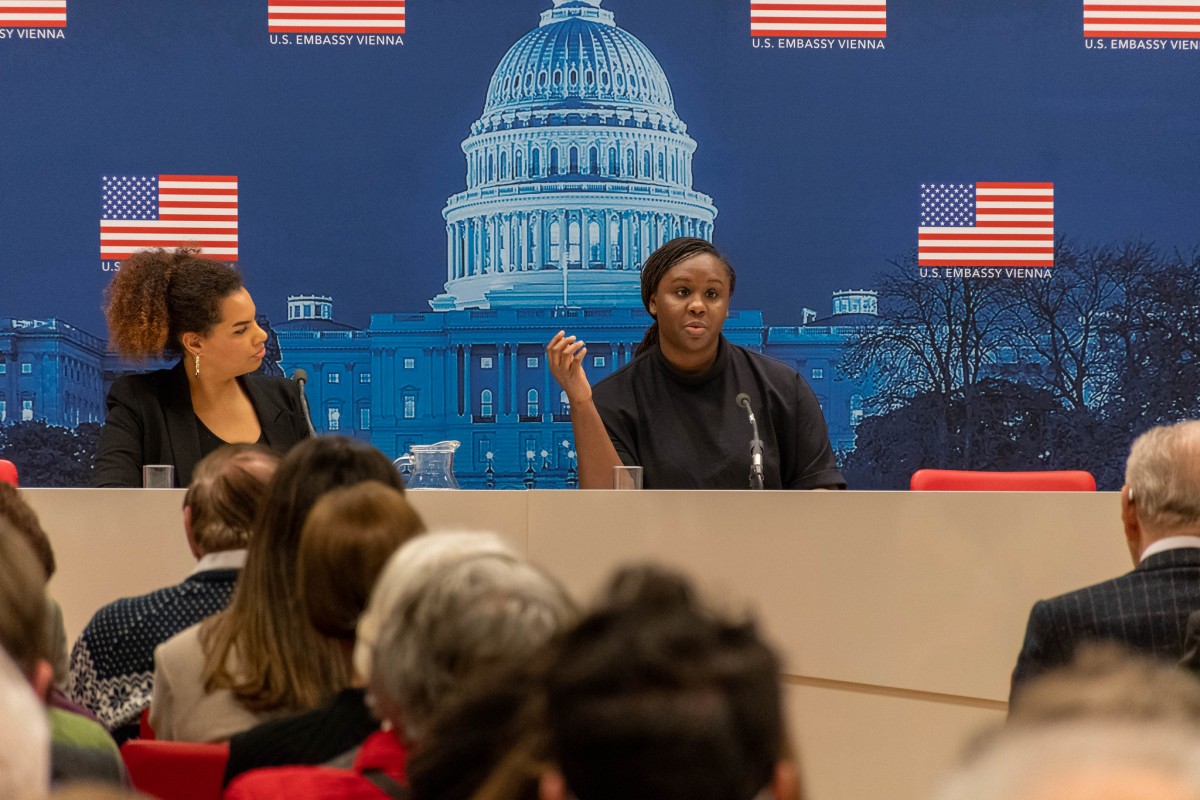Sponsored Content
Race, Ethnicity, and Gender Are Important: Assistant Professor From Georgetown University Jamil Scott in Austria
Assistant Professor Jamil Scott from Georgetown University was present in Vienna at Amerika Haus and in Linz at Johannes Kepler University to talk about political behavior in different aspects.
 Assistant Professor Jamil Scott Discussed Political Behaviour at a Round Table at the Amerika Haus in Vienna. / Picture: © U.S. Embassy Vienna
Assistant Professor Jamil Scott Discussed Political Behaviour at a Round Table at the Amerika Haus in Vienna. / Picture: © U.S. Embassy Vienna
Jamil Scott, assistant professor at Georgetown University, visited Austria for a three-day program in Vienna and Linz to discuss political behavior. She spoke at round tables with experts and representatives of minority groups, led a workshop for Austrian teachers, gave media interviews, and gave a lecture at the Amerika Haus.
The latter was moderated by journalist and historian…
or Log In
Fast News Search





